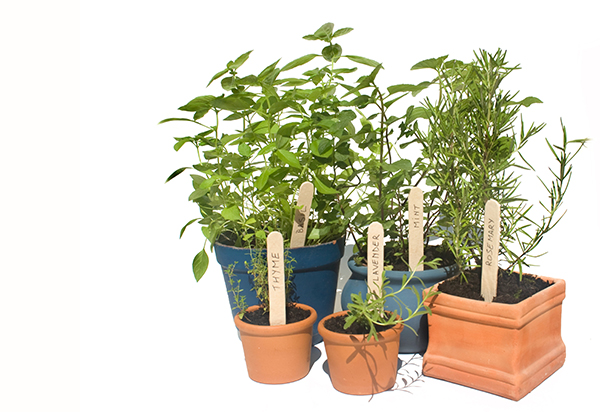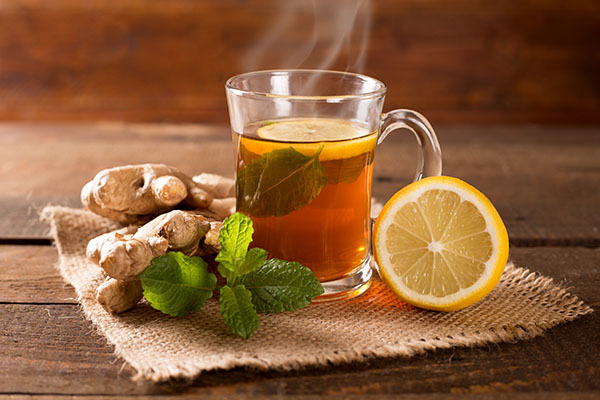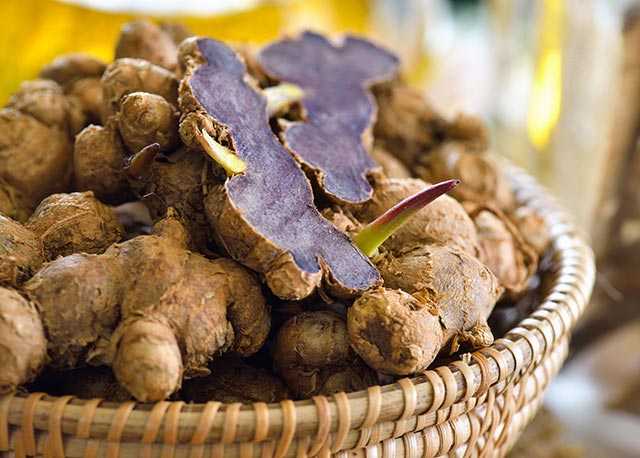Prepper pharmacy: 17 Medicinal plants you can grow indoors year-round
01/08/2024 / By Olivia Cook

Here is a list of medicinal plants, herbs and spices that you can grow indoors throughout the year. You only need a windowsill, vertical spaces on walls that get enough sunlight or a gardening table set up beneath grow lights to grow these medicinal plants in your home.
These plants are the same ones that you would snip off a sprig or two in an outdoor garden to toss into your casseroles, homemade sauces, salads or soups. Use these plants for their essential oils or to make poultices, salves, teas and tinctures for your medicinal needs.
Basil
Mothers can use basil both before and after giving birth to enhance blood circulation and facilitate the flow of breast milk. Native Americans use basil to treat insect bites and draw out venom from snake bites. Basil can also be used as a natural deworming aid for both humans and animals.
When applied topically, basil can treat minor burns and wounds and help remove warts. It can also help with kidney issues, loss of appetite and stomach spasms, as well as reduce swelling due to fluid retention. Basil can also help relieve cold symptoms.
Chamomile
This medicinal herb can be used to treat ulcers, hay fever, rheumatic discomfort, muscle spasms, minor wounds, muscle and tendon inflammation, menstrual pain, hemorrhoids, insomnia and gastrointestinal disorders.
Chamomile is an excellent natural base ingredient for salves, creams and lotions for dry skin and sunburn.
Chives
Boasting high amounts of vitamins A and C, chives are great for supporting bone and immune health. Chives also contain folate and choline, which can promote good-quality sleep.
Research has found that the phytochemicals in chives, such as ajoene, flavonoids, quercetin and S-allylmercaptocysteine, have potent anticancer properties.
Echinacea
Echinacea is a medicinal plant with brightly colored flowers that can easily brighten up any room in your house. You can use echinacea to make an herbal tea that can prevent and treat respiratory illnesses and boost your immune system.
Garlic
An active base ingredient in many home remedies, garlic is excellent for removing toxins from the body. Garlic can naturally prevent and treat gum disease, respiratory issues and symptoms associated with the common cold and flu, cold sores and yeast infections. It can also help draw out venom from spider bites.
Lavender
Known as a calming and relaxing herb, lavender has been shown to help relieve anxiety and other mood issues. Lavender can also be used as a natural remedy for fungal infections, hair loss, insomnia and skin problems like acne, dry skin, minor wounds and eczema.
Lemon balm
A medicinal herb from the mint family known for its lemon scent, lemon balm is commonly used as a natural medicine for liver and bile issues as well as gastrointestinal problems. When combined with valerian, lemon balm can help relieve restlessness and can even be used as a natural sleep aid. (Related: Lemon balm helps improve gut motility, says research.)
Marjoram
An aromatic herb from the mint family, marjoram has been used to make home remedies for thousands of years. Marjoram has medicinal properties that can be used to treat cough, depression, dizziness, gallbladder problems, muscle and nerve pains, nervous headaches and migraines, runny nose, stomach cramps and many more. (Related: Marjoram can prevent gastric ulcers while showing promise in fighting breast cancer.)
Oregano
Another potent medicinal herb with a long history of use as medicine, oregano can be used as a natural remedy for skin sores, aching muscles, asthma, cramps, diarrhea, indigestion and the common cold. Studies have shown that oregano can also help relieve inflammation, treat bacterial infections, regulate blood sugar and blood cholesterol levels, and fight cancer.
Parsley
A flowering plant whose leaves are widely used as a culinary herb, parsley is a great source of antioxidant vitamins, such as vitamins A and C. It is also rich in vitamin K, which is needed for blood clotting and maintaining strong bones. Parsley boasts powerful antibacterial, antifungal and anticancer properties, the latter of which is thanks to the flavonoids, myricetin and apigenin.
The antioxidant carotenoids in parsley, namely, lutein, beta carotene and zeaxanthin, can also support optimal eye health and prevent age-related macular degeneration. (Related: Parsley is a blood purifying superfood.)
Rosemary
Aside from seasoning food, rosemary can be used to fight halitosis and naturally freshen one’s breath. Because of its beneficial properties, rosemary is often added to all-natural homemade toothpastes and mouthwash solutions. According to studies, rosemary can also enhance brain performance and helps improve digestion, mood and sleep quality. It has natural pain-relieving properties and can also help boost immune function.
Sage
This herb from the mint family can be used to treat bloating, dyspepsia or stomach upset, diarrhea, flatulence, heartburn, hot flashes and memory loss. When used to make tea, sage can also help reduce inflammation, lower blood sugar levels and even fight cancer. Gargling with sage tea is also said to be a good remedy for mouth wounds, sore throats and bad breath.
Spearmint
A pleasantly sweet-tasting herb from the mint family, spearmint is a common ingredient in chewing gums and oral care products. Spearmint is high in antioxidant compounds and is a great natural remedy for digestive issues, such as indigestion and gas. It can also help treat symptoms of hormonal imbalance in women, such as excessive hair growth, or hirsutism.
According to studies, spearmint has antibacterial properties that can help get rid of bacteria in your mouth that cause bad breath. Drinking spearmint tea is also said to help lower blood sugar levels in diabetics.
Stevia
A healthy natural sweetener, stevia, or candyleaf, is an herb from the daisy family that is said to be eight to 150x sweeter than sugar. Stevia is low in calories and has a negligible effect on blood sugar, making it an ideal alternative to table sugar and other unhealthy sweeteners. Studies show that certain glycosides in stevia could help lower blood pressure by helping dilate blood vessels.
Stevia also contains an abundance of antioxidants, such as kaempferol, which has been found to inhibit the growth of pancreatic cancer cells.
Tarragon
Tarragon is an herb from the sunflower family that has long been used in Traditional Asian Medicine. Research suggests that tarragon is an anti-inflammatory, antiepileptic and antipyretic (reduces fever) agent that can also be used to relieve pain naturally. Tarragon is also effective for treating helminthiasis, or infestation of parasitic worms.
Studies show that tarragon also has antioxidant, antitumor, liver-protective and blood sugar-lowering effects. (Related: Tarragon and its many surprising health benefits.)
Thyme
A versatile herb from the mint family, thyme can be used as a substitute for salt in the kitchen. Thyme is well-known for having antiseptic, disinfectant and antibacterial properties, and for its history of use as a food preservative. During World War I, thyme was burned as a fumigator and was even used by ancient doctors to protect them from the Black Plague.
When used for cooking, thyme can help stimulate the appetite and promote good digestion. Its active components, thymol and carvacrol, are often added to mouthwashes, toothpastes, soaps, creams, salves, lotions, liniments, throat lozenges and cold remedies.
Turmeric
Widely known for its many health benefits, turmeric is the spice that gives curry its yellow color. Curcumin, the main active compound in turmeric is a potent anti-inflammatory and antioxidant agent that can help lower your risks of brain and heart disease and cancer. Aptly called the “Golden Spice,” this medicinal herb is traditionally used to heal wounds and treat a variety of ailments, such as rheumatoid arthritis, conjunctivitis, small pox, chicken pox, urinary tract infections and liver issues.
Plants are versatile gifts from Nature that can serve you well either as food or medicine when SHTF. Learn more about useful plants to grow in your home garden at GrowYourMedicine.com.
Watch the following video to learn about 10 medicinal plants you should plant for a complete backyard pharmacy.
This video is from the Poiashek channel on Brighteon.com.
More related stories:
These 7 herbs can help you through life’s aches and pains.
15 Perennial herbs to grow in your survival garden.
12 Medicinal herbs and spices than can boost the immune system.
Sources include:
HortNews.Extension.IAState.edu
Submit a correction >>
Tagged Under:
alternative medicine, green living, herbal medicine, Herbs, home gardening, homesteading, indoor gardening, natural cures, natural health, natural medicine, off grid, phytonutrients, plant medicine, preparedness, prepper, prepper pharmacy, prepping, remedies, survival, tips
This article may contain statements that reflect the opinion of the author
RECENT NEWS & ARTICLES
Herbs.News is a fact-based public education website published by Herbs News Features, LLC.
All content copyright © 2018 by Herbs News Features, LLC.
Contact Us with Tips or Corrections
All trademarks, registered trademarks and servicemarks mentioned on this site are the property of their respective owners.


















